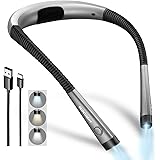Alberta education minister wants to make charter schools permanent
Alberta Education Minister Demetrios Nicolaides says charter schools will become a more established element of the province’s education system.
In a year-end interview last week with CBC News, Nicolaides says he’s considering whether charter schools, which are granted approval to operate for up to 5 or 15 years at a time, could be deemed permanent.
“This is an important moment when it comes to charter schools,” Nicolaides said.
He added that the current law and regulations don’t match how the schools operate. He plans to consult with the sector in the new year about potential changes.
“A lot of [the schools] are really operating in a world that’s quite different from what that original vision articulated,” Nicolaides said. “A lot of them have become almost permanent fixtures of our education system.”
The evolution of Alberta charter schools
The Progressive Conservative government created publicly funded charter schools in 1994 as a way to spur innovation in the education system. With an initial limit of 15 charter organizations operating at once, the schools were tasked with partnering with post-secondary institutions and local school boards to share what they’d learned so successful approaches could be replicated throughout the public school system.
A 2009 provincial government discussion paper on charter schools said the innovation and broad replication of successes “has largely not been realized.”
After they were elected in 2019, the United Conservative Party lifted the 15-cap limit on charter schools and made it easier to apply to create a charter school.
A Canadian schooling option unique to Alberta, charter schools must prove they will use an educational approach not offered by a local school board, or offer vocational training.
Applications to found charters grew after the rules changed. Alberta Education says there are now 22 charter authorities running 38 schools, most of which are in Edmonton and Calgary.
Enrolment in charter schools has grown nearly 30 per cent since 2019, with around 12,800 students attending them — and many thousands more on waiting lists.
Provincial regulations say a charter school’s first operating agreement will be up to five years. The education minister can renew a charter for up to 15 years.
The demand for charter schools and government’s ideological support for more schooling options has also prompted them to increase the funding dedicated to modernizing, expanding and constructing new charter school buildings.
A new $8.6-billion plan to build dozens of buildings for Alberta’s ballooning school-age population includes a commitment to build three new charters and renovate two charter buildings each year for three years. It’s part of a goal to add 12,500 charter school spaces in the next four years, doubling enrolment in the charter system.
Time limits a hurdle, charter superintendent says
Some schools have been lobbying government to approve charters that are continuous rather than expiring after 5 or 15 years.

Among them is Calgary’s Foundations for the Future Charter Academy (FFCA), which has eight school campuses and 4,200 students learning from a traditional instruction model that emphasizes character development.
FFCA superintendent and CEO Kurtis Leinweber says the potentially expiring charter agreements leave uncertainty hanging over established organizations like his, which began operating in 1997.
FFCA is currently in year 13 of its 15-year charter. Leinweber says it’s nerve-racking to tell prospective families they can’t guarantee they’ll be allowed to be running in three years’ time, or to sign a long-term lease for a property. A continuous charter for a well-established school would help with long-term planning, he said.
“It puts us in a position where we can actually guarantee or provide a level of assurance to families and future students that, yes, we are here, and we are going to be here,” he said.
Renewing a charter is an onerous process involving internal and external evaluations, Leinweber said. He’s not opposed to continuing that accountability mechanism, but says the default assumption should be that the school will remain open.
The Education Act gives the minister the power to issue a school a continuing charter by regulation.
Are charters improving public schools?
The Charter Schools Regulation also says schools must describe how their successful innovations will be communicated to the education community.
Nicolaides said in the interview there’s no formal mechanism through the government requiring school divisions to replicate programs offered in charter schools.
“Ministries over the past have taken more of a laissez-faire approach to their work and encouraged other school boards to look at what a particular charter school is doing,” he said.
He pointed to public school divisions offering all-girls and all-boys programs after seeing public demand for those offerings in charter schools.
Leinweber said sharing information about charter school programs and successes beyond the government is “one of the biggest challenges that charter schools have faced.”
FFCA is enthusiastic about sharing what they’ve learned with school divisions, he said, pointing to the Calgary Board of Education’s creation of “traditional learning centres,” which are now offered in 14 schools. He says these are modelled after FFCA.
“We met with CBE representatives, we walked through everything that we did,” Leinweber said.
If a charter school becomes a permanent fixture with no formal requirement to share its innovations with others, what distinguishes it as a charter?
“It’s a great question, and I don’t know what the answer to that is,” said Dennis MacNeil, president of the Public School Boards Association of Alberta.
Trustees belonging to his organization are opposed to the proliferation of charter schools, saying they erode scarce funding from the public school system, while retaining the power to cap class sizes and turn students away.
He said some shrinking rural communities are also manipulating the government’s love of charter schools to resurrect shuttered small-town public schools.
MacNeil said if charters want to be permanent fixtures, they should be governed by trustees elected by the general public.
“If a charter school is showing innovation and is doing what it’s supposed to be doing, what would be wrong with having it absorbed back into the public system again?” MacNeil said. “Where that accountability is available, and where every student that applies to a charter school would be able to get in.”
In a year-end interview with CBC earlier this month, Premier Danielle Smith said the demand for charter school programs demonstrates the model is a success.
“When they can choose a type of educational format that really works, the public schools are able to adopt it, and that’s exactly the kind of innovative model that we want,” she said.
View original article here Source









